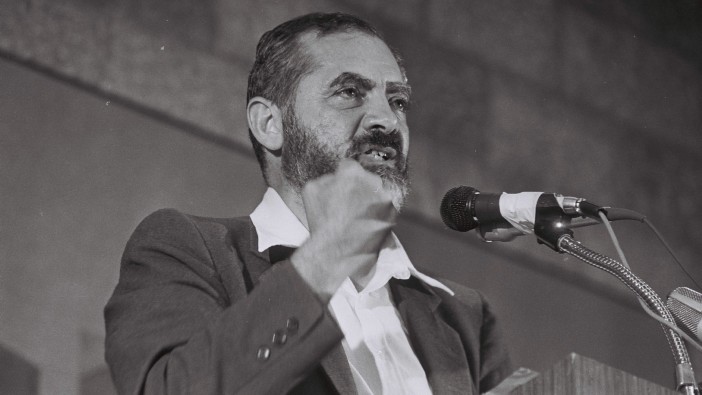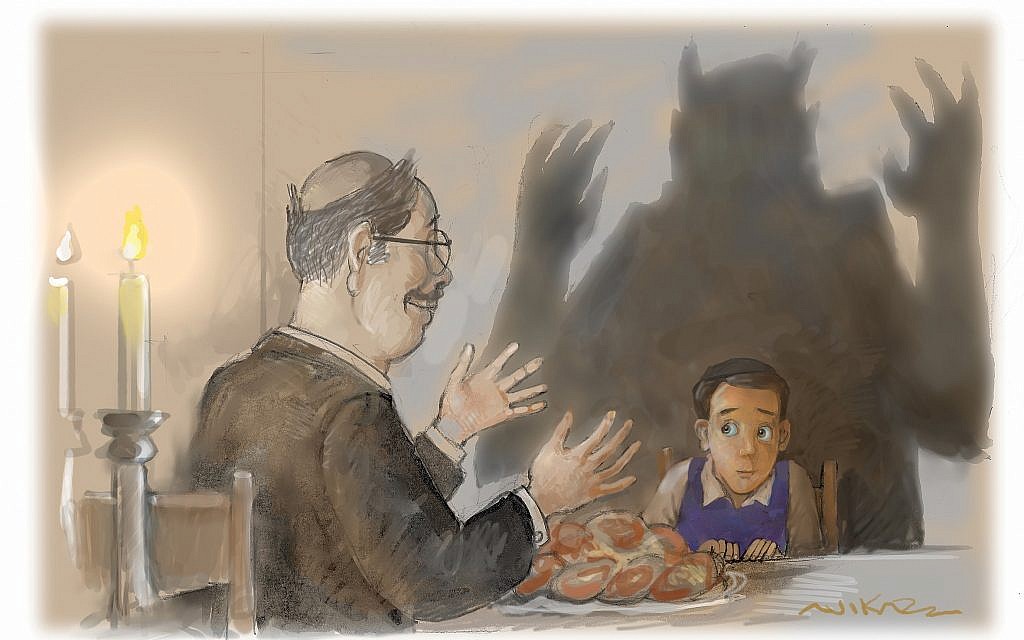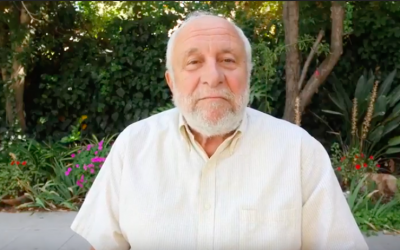By Rabbi Aaron E. Glatt, MD
There is a small, yet very vocal and influential group of “anti-vaxxers” living in our heimishe communities. They should stop reading now, as they will not like what I have to say, will not listen to what I have to say, and will write personal non-scientific scathing diatribes against me. However, I hope the rest of Klal Yisroel keeps on reading this critically important pikuah nefashos article, which the Yerushalmi essentially states is a primary chiyuv of a rav to darshen.
“Measles Outbreak in New York City in the Orthodox Jewish Community” was the title of a letter sent last week by the Department of Health to physicians across the state. Unfortunately, this is only the latest such tragic headline among numerous similar and preventable outbreaks in recent months and years, in our communities, in the U.S., Eretz Yisroel and Europe. I was truly saddened, embarrassed and pained.
Almost all the cases of measles are directly related to someone (or many people) being unvaccinated and spreading their illness and ignorance to others. I am very sorry if that offends anyone, but my vaccinated, 2-year-old granddaughter just had to get an urgent premature second dose of MMR vaccine after being exposed in “gan” in Israel; her 5-month old brother, too young to be vaccinated, had to get a painful gamma globulin shot, because of such incorrect and dangerous medical views. Hashem yeracheim.
There is absolutely no one who disagrees with the psak that a parent is required to remove one’s child to safety when a danger is present. Indeed, this is part of the basis for the halachic ruling of HaRav Elyashiv zt”l, who viewed normal childhood vaccinations as being an obligatory part of parental obligations.
HaRav Asher Weiss, shlita, poseik for Shaare Zedek Hospital, says it is a mitzvah and chiyuv to get vaccinated, bringing a proof from the story of Sodom from this week’s Parsha. He further states that yeshivas have the right and even obligation to protect other students, and should not allow unvaccinated children into school. This is also the written psak of HaRav Yitzchok Zilberstein, shlita as well as the psak of HaRav Elyashiv, who ruled that parents have the right to have unvaccinated children excluded from class so as not to cause unnecessary risks for their children.
Many other gedolei Yisroel, including HaRav Shlomo Zalman Auerbach zt”l, HaRav Yehoshua Newirth, zt”l, and yibadeil bein chayim lechayim, HaRav J. David Bleich, HaRav Reuven Feinstein, HaRav Hershel Schachter and HaRav Mordechai Willig, shlita, have all ruled that there is no basis in halacha to suggest that vaccinations should be avoided. All strongly urge and support appropriate universal vaccination against the major childhood potentially fatal illness that are preventable.
Indeed, it is sheker (dishonest) to officially avow that Jewish law forbids vaccination, which is the only way in some states to avoid mandatory state vaccination laws by providing such a false attestation about our religion.
 |
| Signatories: Shmuel Kaminetzky, Malkiel Kotler, Mattisyahu Salomon |
So why all the headlines, anguish and outbreaks among the “People of the Book?” Why did 180 children, 80 percent of whom were unvaccinated, die in the United States during 2017/2018 from flu, along with 80,000 adults? Why do yeshivas and camps have to close and stop learning because of mumps outbreaks? Why were six babies hospitalized with measles in the past month at Ichilov Medical Center in Tel Aviv? Are we living in the 1950s?
In my humble opinion, as a community rav and board certified infectious diseases physician expert, it is because we somehow have forgotten to read the word of Hashem. Halacha states that if there is a dispute regarding whether a patient should eat on Yom Kippur, or if Shabbos desecration is necessary to save a life, the most competent and/or the majority of experts make the determination.
Regarding vaccination against the major vaccine preventable illnesses, both determinants (expertise and majority) are the same. The Centers for Disease Control and Prevention, the World Health Organization, the Infectious Diseases Society of America, all 50 state Departments of Health in the United States, the Pediatric Infectious Disease Society, the American College of Physicians, and every other major professional infection control organization in the world, clearly opine unanimously. Bar none – “leis man depalig” – there is no mumcheh (expert) organization that disagrees. The evidence is overwhelming that vaccination is the only way to control these preventable fatal diseases. Chasdei Hashem – no one dies anymore of smallpox; polio is almost wiped out – solely, and only because of very successful vaccination programs. Rachmana leztlan, why should anyone in 5779 die from measles???
Why are people not following these medical experts as halacha requires? Why are my (and your) precious children and grandchildren unnecessarily exposed to lethal illnesses, forced to take painful and additional medications and shots, because non-experts “believe” otherwise.
Imagine if parents were to insist their child come to school armed with a revolver. Would even the most ardent gun rights activist insist this is right? So why are we letting children come to our shuls, schools and camps spreading serious potentially life threatening illness that could have been prevented by vaccination?
All the major rabbinic organizations have rightly and strongly spoken out against physician assisted death; I myself also recently published on this subject. Therefore, I feel compelled to publicly speak out (again) against “non-vaccination assisted death”, a cause which unfortunately does not get enough similar support. Please ask your Rav to speak about this on Shabbos – it is a matter of pikuach nefashos.
Rabbi Aaron Glatt, MD, FACP, FIDSA, FSHEA, is Chairman of Department of Medicine, Chief Infectious Diseases and Hospital Epidemiologist at South Nassau Communities Hospital; Clinical Professor of Medicine at Icahn School of Medicine at Mount Sinai and Assistant Rabbi, Young Israel of Woodmere.
***
DOHMH Alert #38: Measles Outbreak in New York City in the Orthodox Jewish Community
This month, DOHMH issued an advisory about an international traveler with measles who potentially exposed people in various New York and New Jersey venues during the October 4-11, 2018, time period. DOHMH now reports that there has been an outbreak in the Orthodox Jewish Community in Williamsburg, Brooklyn, with six cases confirmed.https://www.gnyha.org/news/important-infectious-disease-updates-continued-spread-of-measles-ebola-outbreak/
LAKEWOOD, NJ — A suspected case of measles has been reported in Ocean County, a medical group in Lakewood announced.
CHEMED — the Center for Health Education, Medicine and Dentistry — posted the notice on its website Wednesday. The notice additionally said there are confirmed cases of pertussis — also known as whooping cough — and varicella (chicken pox), but did not say where......
https://patch.com/new-jersey/lakewood-nj/suspected-measles-case-reported-ocean-county?utm_source=alert-breakingnews&utm_medium=email&utm_term=weather&utm_campaign=alert





















